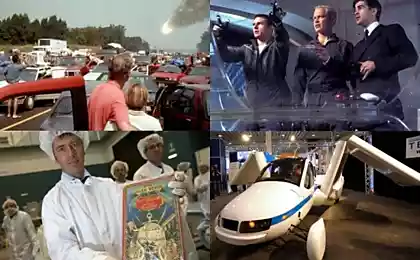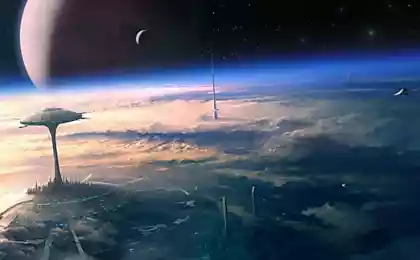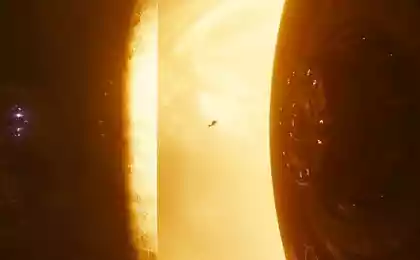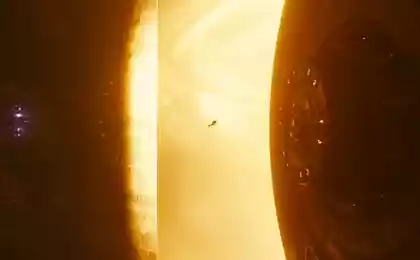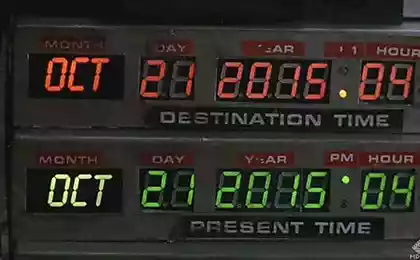649
What can be learned about the future by reading 100 science fiction books
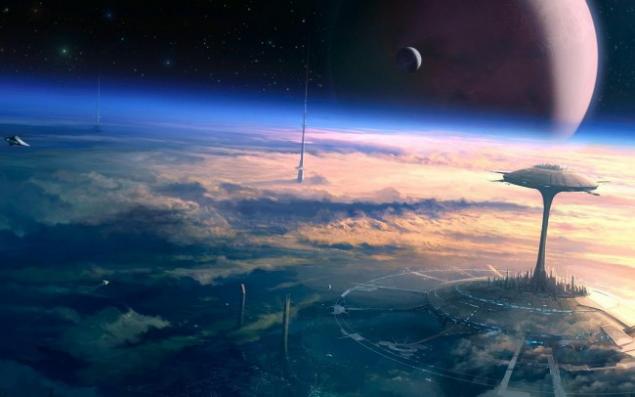
Interesting essay on the website Medium.com-what can you learn about the future by reading hundreds of science fiction books? I don't know if you this is as close as I, but then — in the first person.
Over the past two years I have read a hundred science fiction books, averaging one a week.
I started to read science fiction to pass the time. As a child, I well remember "Jurassic Park". I continued to read, when he discovered that she gave me something else: a powerful imagination and disregard for the ordinary, simple and possible. I noticed that I have other ideas which you will find by reading TechCrunch or any other digest of Silicon valley. By occupation I sell ideas, and these books for me is both a treasure and a tool.
Says futurist Jason Silva, "imagination allows us to feel the excitement of the possibilities of the future, to choose the most amazing and pull the present forward to meet them." I think that reading these books allowed me to experience it fully.
At the heart of every good science fiction story is a thought experiment, a kind of core, and I decided to start my own:
What if these books actually show, what would it be like in the future?
This statement is not so far from reality. Reading the early classics like Jules Verne and Hg wells, I was amazed not so much how wrong they were and how they were right. Your list I compiled of list of the best sci-Fi works of all time, so these books reflect the best ideas (or at least most interesting), in the opinion of mankind.
This is the future that we're moving, in the opinion of the greatest science fiction writers.
1. To save humanity, we must lose it
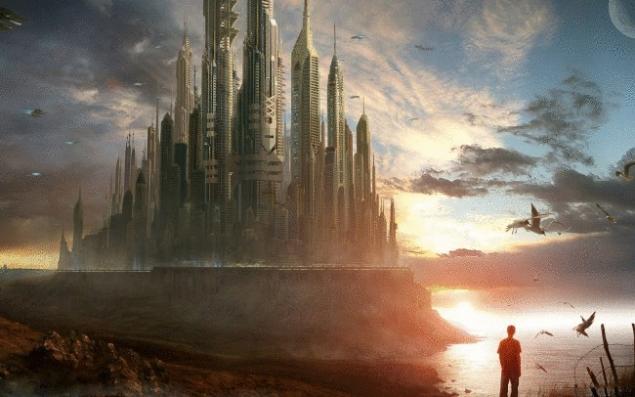
We all know that long-term survival of our species depends on colonizing other planets and then other solar systems. The question is not whether our planet is uninhabitable, the question is when.
But looking at the distances and time frames that are behind this process, it becomes clear that as soon as we start to settle, we begin to move away from each other, to drift.
Everything starts with language and culture. Colonies on other planets, separated by millions of kilometers and hours transmission of radio messages will begin to develop their own dialects, their own slang, music, trends. It is enough to look only at the changes in the English language, to the difference of the dialects of Scots mountain and California surfers, the South African Boers and the Caribbean creolized, and understand that this is only a hint of the cultural depth.
Then will the political and economic drift. As well as the cultural identity of Americans born in the process of the American revolution, the colonies will consider themselves other, demand our rights and the governments representing their interests. Given the distance, we will be able to suppress only the first few uprisings, but time will pass and they will find a way out.
Economic integration will continue, but much slower than space exploration and colonization. By the time when we can fully integrate these colonies into their economies, they have to be self-sufficient economic system.
Finally, we will see genetic drift. It is noteworthy that, despite our great diversity here on Earth, we all represent one species, which means that any individual can procreate with any other person of the opposite sex. Based on this we can reconstruct the genealogical long way in 160 000 years.
But it is no more than historical accident. Before that at least several species of hominids roamed the planet, and only the rapid emergence and expansion of homo sapiens from Africa around the world has become a key point in the prevalence of our species.
By the time when some of us have left the planet, the DNA will again begin to disperse. A limited gene pool, a variety of pressure, other sources of mortality, levels of radiation and mutation — all this displays of space explorers on a new evolutionary path, arbitrary or artificial.
Eventually, after hundreds or thousands of years, even one key mutation in a distant isolated colonies can make reproduction impossible by cutting off that branch forever.
In order to save humanity, we must colonize the stars, but the common definition of humanity, which we know will be lost.
2. Time is our worst enemy
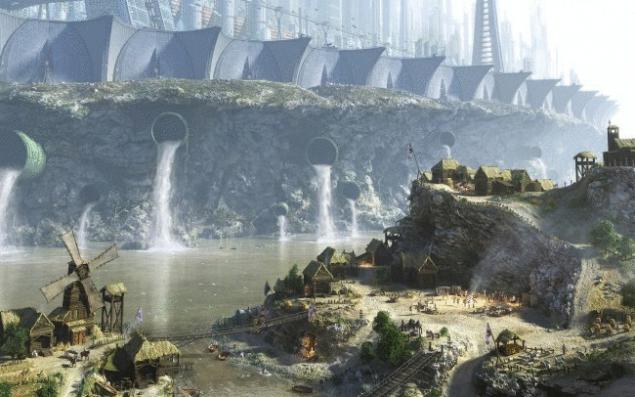
As soon as we master three spatial dimensions, the fourth dimension — time — will become a bigger and bigger problem.
The first reason is the slowing of time, proven a consequence of the theory of relativity, recently shown in the movie "interstellar" and played in dozens of fiction books for tens of years. Time dilation is a phenomenon that manifests itself depending on how fast you are moving (with all the consequences). If someone will travel at relativistic speed, he will age slower than those who remain on Earth.
Only the consequences of this phenomenon are striking. Long-term space mission with the return to their home planet will inevitably end with the fact that everyone knew the travelers were dead. Families are separated by centuries, people will outlive their great-great-grandchildren. Legends will emerge from the space capsule is still young. Anyone who wants to see the future, go on a long journey at high speed and will arrive back at the appointed time. It will be like a time machine with only one direction — forward.
The second reason is the huge distances that need to be overcome in the course of interstellar travel. It is likely that first went into interstellar journey may not be the first to arrive — during the trip there will be new technologies, new ways, new methods that will allow the second mission to catch up and overtake the first. Imagine that you are immersed in a cryogenic sleep, as the first group of interstellar travelers, only to Wake up and find your destination for a hundred years colonized.
The third reason is the difference of technology. Technology will be important for every aspect of a space civilization and will improve so quickly that even small differences will have far-reaching consequences.
Two systems with different speed of technological development will be separated by a giant chasm in a few decades or centuries. Their society can become so fundamentally different that even communication and exchange can be hindered.
Technology, sent to a distant system, may become outdated by the time of arrival. Even send information at the speed of light may not be fast enough for systems that are light years from each other. Trade in anything other than raw materials will become incredibly complex.
The war at large distances will be futile, because any military force, sent at sublight speed, it will be outdated by the time of arrival. It can also mean an endless war, which will not benefit neither side. Joe Haldeman described it in the "Endless war" (1974).
We are already experiencing the limitations of time travel and space. You know that the spacecraft "Rosetta", launched by the European space Agency, OSIRIS camera has a resolution of just 4 megapixels. But at the time of launch in 2004, it was the most advanced technology cameras. Today even mobile ashamed to include.
Lander Philae, which separated from Rosetta to land on the comet was equipped with a thoroughly tested harpoons and drills on the ice, which had to take the camera. In subsequent years we discovered that the surface actually consists of a mixture of dust, gravel and ice, and therefore the choice of equipment for work was already wrong.
While flow years, our General perception of time is changing, and we know that the fourth dimension is to us far more problems than the three spatial dimensions.
3. The future will be weird
If I had to choose one word to describe the most plausible future, that word would be "strange". Allow me to explain.
Writers such as ray Kurzweil, did a good job of explaining why we so hard to imagine a future where we're going. He claims our ancient heuristic linear — tracking an antelope, and crossing the Savannah; to estimate how much time you will store the products — but because of Moore's law, we are in the exponential phase changes to which our heuristics are simply not ready.
In other words, we look at the speed of change in the recent past and extrapolate into the near future. But now, when we turn to exponential growth, this kind of extrapolation doesn't work.
This argument is quite convincing, but, more interestingly, it is not the speed of change and the unpredictability of their directions. The stories I read led me to believe that we barely knew about the small consequences of some of the technologies developed, but the effects were very strange.
Take, for example, Dating. That would be like Dating in the world with the advanced treatment of aging? Imagine a man and a woman on a date. Both look for 25 years, but their appearance means nothing. They should play a complicated game, exploring each other and tasting habits and preferences to try to determine the age of another, without disclosing your. Are entire schools and institutions, learning how (and why) you need to get acquainted with people who for decades (hundreds?) older or younger than you.
The area where we will soon be able to observe these strange things called virtual reality. It's funny to see that most of the best portrait painters of virtual reality believe that it will be similar to ordinary reality, with human-like bodies in the humanoid world. I think very soon we understand that this reality "bug, not feature".
What form would you take if you could take any form? There will be a huge number of industries that will help you to be in the shoes of another person, animal, inanimate object, an alien. Other industries will be devoted to the design of the environment, the laws of physics, mental States, personalities, memories and many other things. The film with Robin Wright of "the Congress" (2013) well describes this world.
But the best example of why the future will be strange, is artificial intelligence.
The idea underlying the technological singularity, says that there is a point in our future beyond which we cannot see. It is assumed that this is the point when artificial intelligence at the human level receives access to its source code, marking the beginning of the exponential explosion of intelligence.
But what exactly does this "supernatural intelligence"? What can we expect from the computer, which is a million times, let's say, smarter than all the people who ever lived and died?
We believe that he will devote time to resolving the "difficult" problems — world hunger, earth's climate, the decoding structures of the brain and so on. But you understand that it takes effect our anthropomorphic linear thinking.
We can explore this through an analogy: imagine an ant observing the behavior of the person. From the point of view of ant, the person is not wasting his time with the decision "difficult ant problems." Almost nothing that man does, the ant can neither interpret, nor even to observe; the scale and complexity of the simplest human actions are far beyond the perception of an ant. All that he sees an ant, think he could be described in one word: "weird."
Similarly, we will describe the actions and thinking of superhuman artificial intelligence. If the intelligence explosion does happen, very soon we will be ants compared to him.
Who knows, in what way will this intellect? Maybe he'll invent a new logical system that is incompatible with human neurology? Maybe he will find that our system belongs to someone else and come into contact with our older brothers? Maybe he uses pure math to understand dark matter and move our reality in alternative quantum state in which he is the Creator and we artificial? Most likely, he will do things that even our language is not enough to describe it.
Source: hi-news.ru


